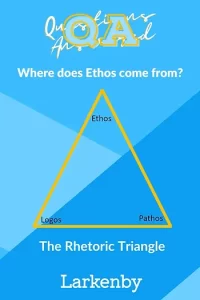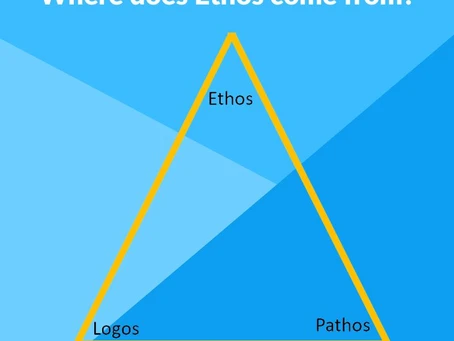I started using the word ‘ethos’ regularly many years ago when introducing a new Values Set to my own business, with the goal of using those values to help create a positive culture.
The word ‘ethos’ represents what you get when you combine the values. It is heartfelt and purposeful, something I could draw upon fully as I took on the task.
The starting point for the word can be traced back to Ancient Greece, and the philosopher Aristotle. This was a golden age of oratory, and Aristotle set out the three necessary components of a speech to persuade: namely logos, ethos and pathos.
Logos (‘the word’) – this is the clarity of the argument, its content and factual accuracy
Ethos (‘character’) – someone’s right to make the argument (and therefore its weight) by dint of their own values and reputation
Pathos (‘suffering/experience’) – a speaker’s ability to appeal to their audience’s emotions.
I started using the word ‘ethos’ regularly many years ago when introducing a new Values Set to my own business, with the goal of using those values to help create a positive culture.
The word ‘ethos’ represents what you get when you combine the values. It is heartfelt and purposeful, something I could draw upon fully as I took on the task.
The starting point for the word can be traced back to Ancient Greece, and the philosopher Aristotle. This was a golden age of oratory, and Aristotle set out the three necessary components of a speech to persuade: namely logos, ethos and pathos.
Logos (‘the word’) – this is the clarity of the argument, its content and factual accuracy
Ethos (‘character’) – someone’s right to make the argument (and therefore its weight) by dint of their own values and reputation
Pathos (‘suffering/experience’) – a speaker’s ability to appeal to their audience’s emotions.
This has subsequently been called the Rhetoric Triangle, and its use allows writers and speakers to create impact.
Looking more broadly, it’s a helpful structure for communications in any kind of project or programme in an organisation.


